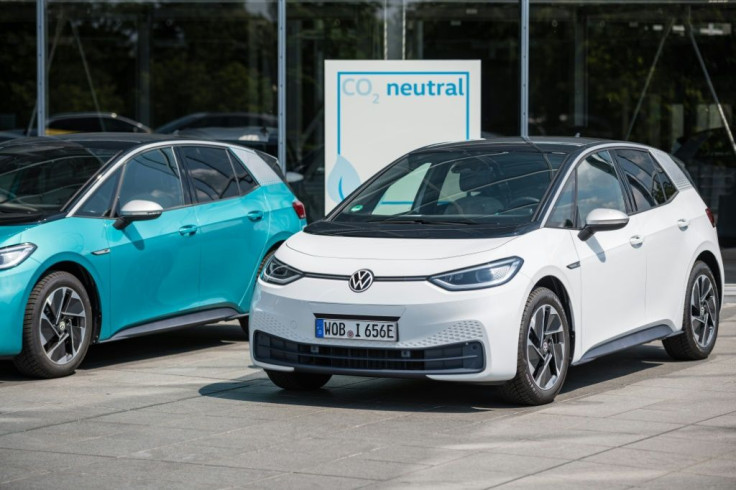Why Americans Are Buying Teslas Over Other Electric Vehicles
Tesla has long had a tight grip on electric vehicle sales, accounting for nearly 80% of electric vehicles sold in 2020.
But the California-based company faces increased competition, as automakers and startups are spending billions to catch up, focusing on localized production of battery cells to meet demand.
Tesla continues to dominate the small sector, as sales of electric vehicles, including hybrids, are expected to represent less than 4% of all U.S. sales this year, according to industry forecasters.
In October, the Model 3 became the first electric car to become Europe's best-selling vehicle. Tesla CEO Elon Musk has said that the relatively inexpensive Model Y would one day become the best-selling car of any kind.
Some automakers had been unwilling to invest heavily in electric vehicles, but the industry is changing.
“It’s no surprise that Tesla’s still dominating electric vehicle sales because they’re the only ones that really have viable products in full swing,” Michael Fiske, IHS Markit associate director, told CNBC in October. “In a growth market, it’s extremely challenging to maintain majority market share, regardless of industry. … As we start to move toward a larger and really significant number of manufacturers that are going to be playing in the space, Tesla has to lose share.”
Most automakers, excluding Tesla, hesitated to invest in the battery cell production that is key to creating electric vehicles until recently, and they largely outsource the production of these battery cells to suppliers in Asia. Now, given the problems with the current global supply chain, automakers begin to focus on local battery cell production, a CNBC report noted.
Investments in electric vehicles soared 41% in the past year. Based on a rolling five-year average of announced investments, companies are expected to invest $330 billion through 2021 throughout the global EV supply chain, AlixPartners noted in a press release in June.
Due to automakers’ and startups’ investments in making electric vehicles, Tesla's market share of all-electric vehicles is expected to drop in 2021 to 56%, and to 20% by 2025.

The adoption of electric vehicles will be rapid but are unlikely to meet President Biden’s goal that half the new vehicles sold in the U.S. will be electric.
General Motors made a strategic supplies agreement with Wolfspeed for the development of silicon carbide power devices for use in GM’s future electric vehicle programs, according to Tip Ranks. GM expects to surpass Tesla as the U.S.’s largest electric vehicle seller.
Meanwhile, the global market keeps getting bigger. European automakers like Volkswagen and Volvo plan to build exclusively electric over the next decade, while Jaguar plans to only sell electric cars from 2025.
"There are plenty of competitors in the electric car market now that Tesla has proven that there is indeed demand for the product," Josh Simpson, vice president of operations and investment adviser with Lake Advisory Group, told U.S. News and World Report.
© Copyright IBTimes 2025. All rights reserved.




















